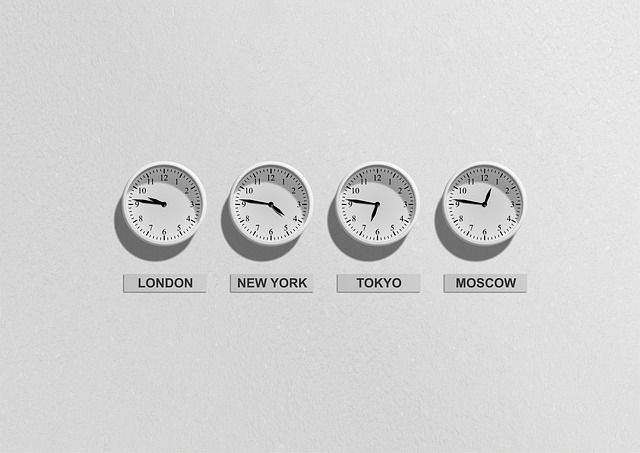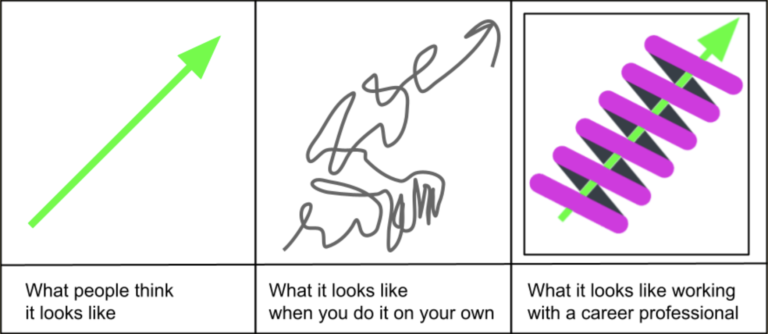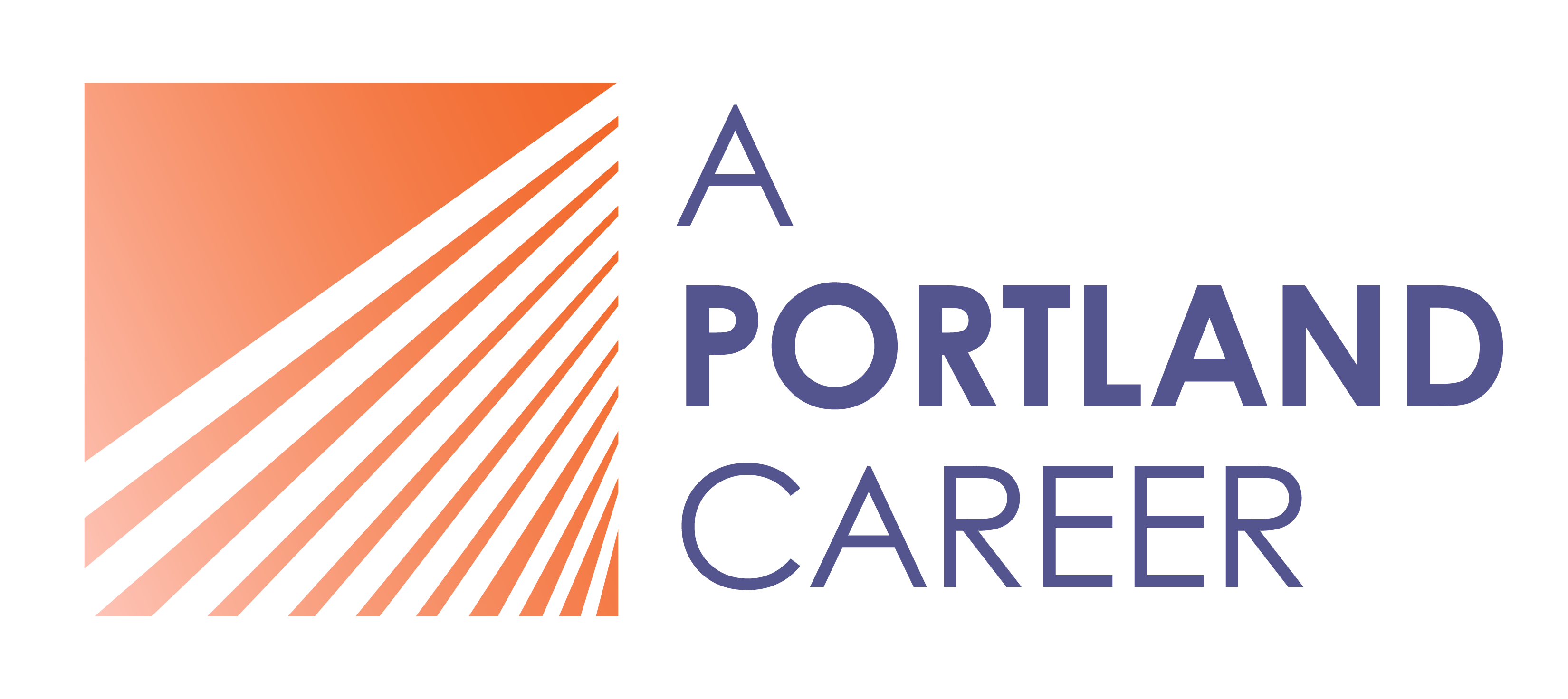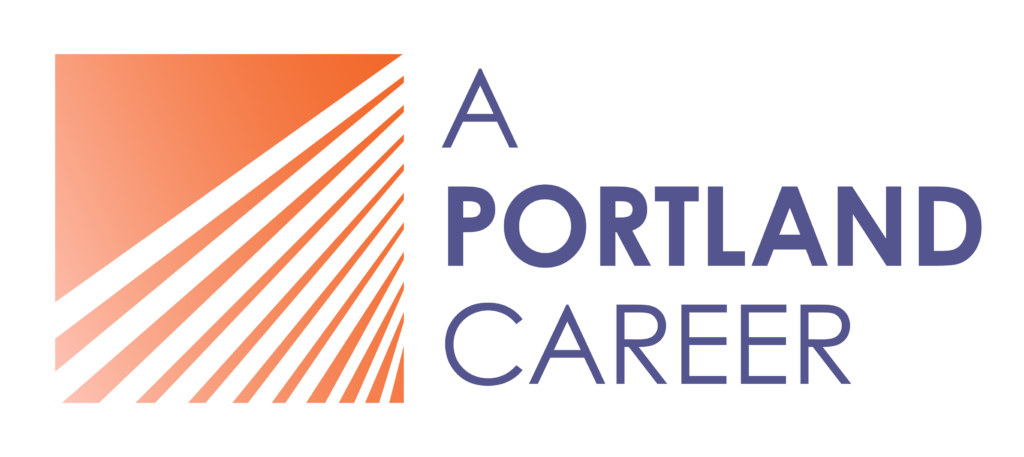Here’s 7 of our best tips to take your career exploration from brainstorm to organized search. Narrow down job titles, tap your network, and find the right research tools!
Here are the practical and emotional factors that can impact your job search, with room for serendipity and the unexpected!
6 Factors that Impact Your Career Change Time Frame
By A Portland Career, and edited by Suzie Sherman and JD Duran
Job search got you down? We can support you at every step

Life is indeed difficult, partly because of the real difficulties we must overcome in order to survive, and partly because of our own innate desire to always do better, to overcome new challenges, to self-actualize. Happiness is experienced largely in striving towards a goal, not having attained things, because our nature is always to want to go on to the next endeavor. —Albert Ellis, Michael Abrams, Lidia Dengelegi, in their book Personality Theories: Critical Perspectives
As you prepare for your career transition, remember it is both a strategic step-by-step process and a somewhat unpredictable journey. Examine your preconceptions about what it takes to make it, and expect a few surprises. Let your deepest interests and values drive you, and you will find that people tend to respond affirmatively and help you in unexpected ways.
Stay open to see where light appears under a door that initially appeared unwelcoming and tightly shut. Don’t expect your search to conform to the most convenient time frame for you. Understand the practical and emotional factors that will impact your job search timeline.
Home → Helpful Articles → Career Exploration → 6 Factors that Impact Your Career Change Time Frame
We’ve got lots of articles to help inspire and organize your career exploration. Take a look at these:
- Is It Time For A New Career Path?
- Your Career Values Assessment
- Getting Clear on Your Career Path: Discerning Your Interests and Passions
- Taking Your Skills Inventory: Self-Assessment Time
- The 6 Best Career Exploration Websites to Narrow Down your Job Search
- 7 Ways to Make Money for Your Career Change and Still Pay the Bills
When you feel stuck, get in touch with us, and we’ll help you explore your strengths, interests, and passions to find a great career match for you.

How do you measure success?
Over the last 25 years, we have worked with thousands of clients and have seen them meet their goals of a new job or career in as short as two months and as long as two years of committed attention. Statistics indicate that it takes a professional an average of six months to get a new job in the same field. Changing careers entirely can take at least two years, especially if it involves developing a skill set in a new industry, which may require returning to school or a dedicated training program.
Career change success will most likely require deep reflection, which can stir up unpleasant surprises lurking in your unconscious. Be willing to sit with your discomfort, and realize that pain and confusion inevitably will be part of the process at times. Acknowledging your distress and being with it—maybe through mindfulness and meditation—can help you move past it more easily. Resistance, on the other hand, can fuel your suffering and delay your success. Build this emotional process into your action plan.
Your expectations and emotions around what success will look like might resemble the first two panels in this comic:

Image caption: a three-panel comic illustrating common ideas about “success.” The first panel shows a green arrow pointing straight upward, captioned “What people think it looks like.” The second panel shows a dark gray arrow meandering and looping randomly upward, captioned “What it looks like when you do it on your own.” The third panel shows a green arrow within an organized purple spiral, both pointing upward. The caption reads, “What it looks like working with a career professional.”
Let’s add the third panel into your concept of what your career trajectory might look like with support from responsive career coaches. Your career goals and milestones will likely change over time; you will revisit the skill sets that you develop in different workplaces and bring these transferable skills along in the process; and you’ll continue to grow and expand your professional identity in a strategic way, that also allows for the serendipity of making new, surprising discoveries and connections.
The career coaches at A Portland Career can support you in all aspects of your career transition, from self-assessments on your career values and aptitudes, to writing effective cover letters and resumes, to self-presentation, to negotiating compensation. Let’s talk about how we can support your job search or career exploration.

The 6 factors to estimate your career change time frame
To get a closer estimate of the time it will take, examine the six factors that correlate to the speed of your transition. Reflect on which factors can be improved to move you towards the stronger option. For example, what can you do to move from having virtually no money to having enough to support yourself and your family while changing careers?
If you have more challenging factors, prepare to make a plan to pinpoint solutions that keep your current resources and needs in mind. If you have an advantageous factor, be thankful and think about how to leverage it to save time.
1. Financial resources vs. financial crisis
Ideally, you can financially support yourself while gaining new skills, strategically volunteering, and networking in professional circles. If, however, you are in financial crisis and not working, consider temporary or short-term employment, reminding yourself that you are meeting the basic needs for yourself or your family.
If you need to stay in your current job for longer than you hoped, you can mitigate burnout by thinking about it as temporary and start planning your escape. Explore options to work part-time to allow more room to pursue your true interests. Live simply—experiment with lifestyle choices to reduce expenses and help expand your options.
Once your basic needs are met, you can reset your compass towards your next career: one that balances meaning and making a contribution with more money, better professional development, more work-life balance, or any other long-term goals that drive you.
2. Available time vs. time crunch
Most career transitions proceed more quickly if you have extra time to commit to networking, learning new skills, and crafting a social media presence. You’ve probably heard, “It is a full-time job to change careers or get a job.” We disagree. While networking, learning new skills, and building your social media presence can be time-consuming (and enjoyable!) we think that strategically committing 5-15 hours a week is plenty. If you are currently locked into working 40 or more hours a week, you will be limited to an evening or two per week, which can slow progress.
When time is limited, we encourage you to think creatively about how to do double-duty. For example, can your employer send you to a technical training relevant to both your current position, and (unbeknownst to them) in high demand for your desired career?
Perhaps you can become more strategic with your volunteer activities. For example, if you have your sights set on working in the clean energy field, you could bow out of that beach cleanup event, and, instead, volunteer on a committee for the Association of Energy Services Professionals (AESP).
3. Geographical freedom vs. geographical restrictions
Because Portland is full of wonderful professionals with deep backgrounds in creative fields, technology, sustainability, and social justice, competition is fierce for positions in organizations with strong reputations. If Portland is your first choice, then consider setting a time period for your search for a new career and landing a new position. If, at the end of this time period, job openings are sparse, consider a broader geographical range.
Wanda had a bachelor’s degree in biology along with experience managing an outdoor school. Over a six-month time period she saw only a few job postings in Portland, and most of those stated that a master’s degree was required or preferred. She expanded her job search and quickly landed her dream job as Director of a Wyoming Audubon Society.
Tip: Remote work options have never been more plentiful, so evaluate whether you can thrive in a work from home scenario, and then you might be able to expand your search exponentially.
4. Tech competence vs. tech phobia
In today’s job market, nearly all careers require technical competence, usually with office software, like Microsoft Office or the Google ecosystem, project management apps like Asana or Monday.com, and remote conferencing apps like Zoom. Additionally, if you are a career changer, you might have to develop fluency with industry-specific technologies in your new field.
If technology is a weakness or phobia of yours, read our post Technology and Social Media Skills Self-Assessment to assess and grow your technical skills.
5. Where is your expertise: crowded, new field vs. robust, familiar field?
Common sense suggests that it will be faster to find a new role in an industry where you have a depth of expertise, particularly if that industry is growing. For example, if you train in artificial intelligence or big data, you’re likely to be snapped up once you complete your training. At the other extreme, if you are a new graduate in interior design, you will need to plan on a longer transition due to more competition for less available positions in the industry. Your search will be more efficient and fruitful if you arm yourself with more information about the industries and job roles that are predicted for growth. We recommend researching your target fields in the Bureau of Labor Statistics Occupational Outlook Handbook to streamline your career move.
6. Emotional resilience vs. emotional vulnerability
When you find a career path that you really want to pursue and put effort into researching and networking, it is exciting to imagine your future. Your sense of hope, however, may sag when you discover that your intended path will require a fair bit of money and time to bring to fruition. Others might dissuade you or fail to share your enthusiasm, perhaps loved ones who are worried about the financial ramifications of abandoning your current career to start over.
If the idea of a two-year career transition intimidates you, think about the kind of support you need to respond to deeper challenges. Consider the Buddhist refrain to acknowledge the suffering while resisting the urge to fight it. You will accomplish more on your career journey if you make peace with the fact that things need to change, and draw comfort from companionship, reading, exercise, hobbies or pastimes, and—if necessary—therapy. See our articles Faith, Nature, and Mindfulness and Your Career Development Toolkit for ways to maintain self-care during times of transition.
“Have patience with everyone but especially with yourself. ― St. Francis de Sales

Include others in your action plan
Don’t be afraid to reach out for help in your career transition process. For the best possible results in your job search, whether you are staying in the same career, or making a change, you must enlist people to participate and help you along the way. It might seem counterintuitive to involve other people in your job search, because it feels like it will be time-consuming. But it’s time well-spent.
Getting out of your own head often means getting unstuck, and that will translate to speeding up the process. People in our lives generally appreciate the opportunity to help when asked, and even people we don’t know, who we might find through our social and professional networks, are often excited to be given the chance to offer their opinions and expertise.
Keep your family in the loop
We’ve encouraged you to explore how you can make changes in your life to evaluate and optimize a career transition. You might need to experiment with lifestyle choices around spending, scaling down at your current job, or evaluate whether you can relocate for your ideal career path.
Because these changes and the time frame of your transition will impact your partners, your kids, or anyone who depends on you, keep the lines of communication open. Generally, it is more difficult in the beginning of the process, both for you, and for them. They will appreciate your honesty, and they can offer you valuable reflection and insight.
Reach out to your network, and expand it
One of your most valuable tools in a job search or career transition is your social network, whether you connect on LinkedIn or other social media, or through in-person social interactions, networking events, phone catch-ups, or Zoom dates. Tap your network for:
- Career advice: Ask advice from friends you trust, especially those farther along in their career journey, and sincerely listen to them.
- Job opportunities: you’ll never know whose company or organization is hiring right now if you don’t ask!
- Networking opportunities: ask your friends and colleagues, past or present, if they know anyone you can tap for informational interviews about their company or their industry. Learn how to get more out of informational interviews here. Likewise, you might find someone in your target field with whom you can do some job shadowing.
- Podcasts, books, and online resources: Your social network is probably brimming with more information about your desired industry, if you just ask!
For more great information about networking, particularly if you are an introvert and a little skittish about the idea, read our article Find Your Networking Style.
Final thoughts on your career change time frame
As your vision becomes something you trust more and question less, consider what you still need in the way of resources, routines, and activities to support you in going after what matters most. Oftentimes, this means holding a job that you don’t really love, in order to continue to make ends meet while searching for a more compatible, compelling career path.
A job search or a full career transition will always take time, whether it’s two months to two years. Stay aware of the practical and emotional factors that set the stage for a successful search in a reasonable—but always somewhat unpredictable—time frame. Sometimes the most helpful connections and resources become available if you stay open to the process and trust that your sincere efforts are well worth the wait.
Key takeaways
- There are predictable practical and emotional factors that contribute to the time frame for a job search, or for making a career change. Serendipity and unknowns are also part of the process!
- Job search within the same industry often takes two to six months, while a career transition can take up to two years, depending on readiness, training, and current employment and financial needs.
- Give yourself the resources you need to sustain your search: an interim income, therapy or spiritual practice, feedback from your loved ones.
- Reach out to your friends and colleagues for advice and networking opportunities. People want to help you, and it’s time well-spent!
Related articles you might be interested in:
Getting Clear on Your Career Path: Discerning Your Interests and Passions
Decide whether you should pursue a practical career or a passionate calling with our career interest assessment.
The 6 Best Career Exploration Websites to Narrow Down your Job Search
Discover these Career Exploration Websites and find job titles, requirements, salary range, and the market outlook for the most promising career paths!
Your Career Exploration Brainstorm: Deepen your Search!
In this career exploration brainstorm, we encourage you to think expansively about possible career paths, and then create the ideal career short list for you!





